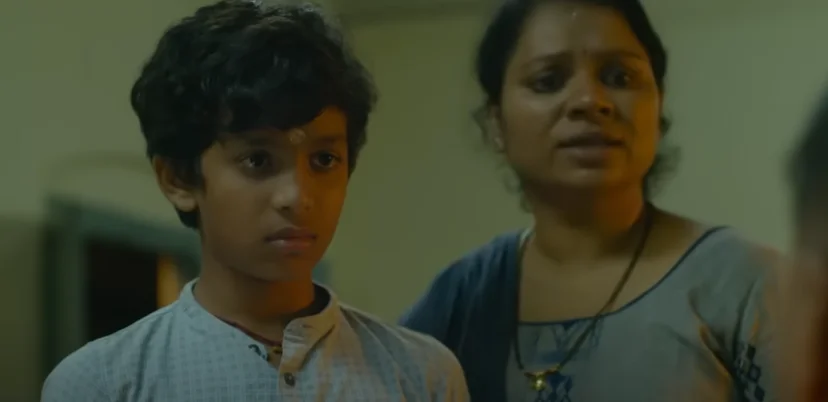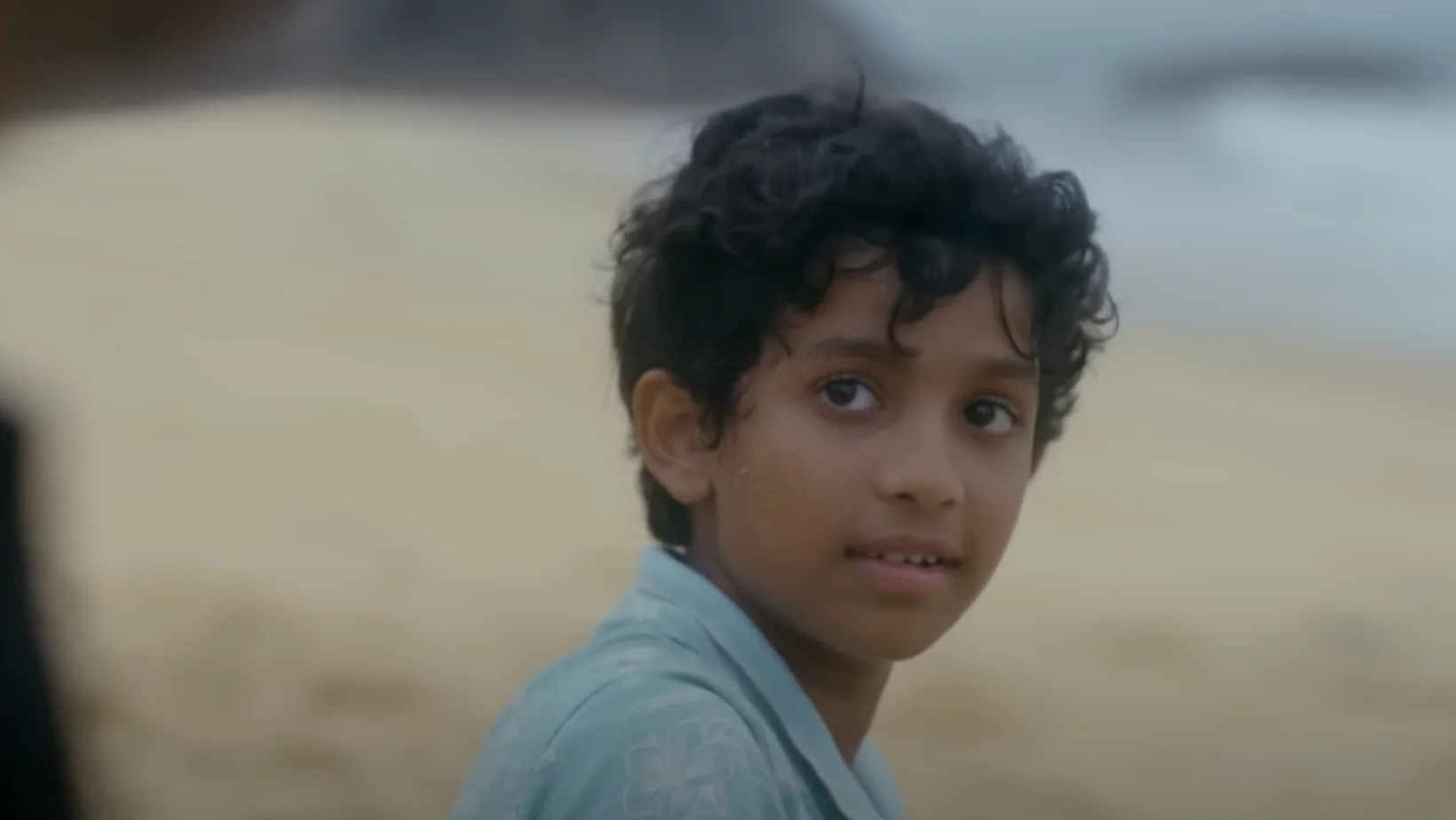Mithya – A Poignant Exploration of Childhood Trauma and Resilience
Few Indian films manage to capture the emotional depth of childhood trauma as effectively as Mithya, produced by Rakshit Shetty and directed by Sumanth Bhat. At its core, Mithya is not just a story about loss but an intimate portrayal of a young boy grappling with grief, displacement, and an unfamiliar world that demands him to adapt. With remarkable storytelling and nuanced performances, the film cements itself as a deeply affecting slow-burn drama.
Also Read: Roopanthara Review – A Slow Burning, Beautiful Metamorphosis
A Performance for the Ages – Athish as Mithya

It’s rare for a child actor to outshine a seasoned cast, but Athish, in his role as Mithya, delivers a performance that lingers long after the credits roll. Unlike conventional portrayals of grief, Mithya does not break down or express his sorrow in dramatic bursts. Instead, his pain is internalized—manifesting in his distant stares, hesitant interactions, and moments of quiet rebellion. His performance is one of subtlety and restraint, allowing the audience to feel his emotional weight rather than being explicitly shown it.
Also Read: Uljhan (The Knot) Review– A Haunting Exploration of Class, Morality, and Guilt
Mithya is a Story of Duality and Displacement
Mithya, an 11-year-old boy, arrives in Udupi from Mumbai after a tragic event upends his life. He is sent to live with his mother’s sister, a transition that is as disorienting emotionally as it is geographically. The film slowly unveils the haunting backstory—his mother allegedly poisoned his father and then took her own life. This revelation is handled with immense sensitivity, unfolding in fragments that allow the audience to process the tragedy alongside the protagonist.
Mithya is torn between two homes, two families, and two languages. The cultural and linguistic shift from Mumbai to Udupi adds another layer to his alienation. He struggles to adjust to the new environment, unfamiliar customs, and relationships that feel both warm and distant. As the film progresses, we witness his gradual loss of innocence—every interaction, every small moment contributing to the emotional burden he carries.
Character-Driven Storytelling and the Power of Restraint
Mithya thrives on character development, making us deeply invested in the protagonist’s journey. It does not rely on melodrama or exaggerated plot twists but instead chooses a more organic and immersive approach. Every conversation, every glance, and every silence carries meaning, shaping Mithya’s transformation. The slow-burning narrative ensures that the emotional weight of the story is never rushed or forced.
The supporting characters, particularly Mithya’s aunt, play crucial roles in his emotional journey. They provide warmth, yet they also unknowingly contribute to his sense of displacement, as their attempts to comfort him fail to bridge the emotional chasm he feels inside.
A Longing for Healing
By the time the film reaches its conclusion, we are left with an aching hope—for Mithya to find peace, for him to emerge stronger, calmer, and happier. The film does not offer an easy resolution, which makes it all the more poignant. Instead, it leaves us with an understanding of grief’s lingering presence and the resilience required to move forward.
Mithya is a deeply moving cinematic experience that explores loss, identity, and the struggles of a child caught between worlds. Athish delivers an unforgettable performance, carrying the film with maturity beyond his years. The film’s measured pacing and emphasis on character-driven storytelling may not cater to all audiences, but for those willing to immerse themselves in its emotional depths, Mithya is a profoundly rewarding watch.
A haunting yet hopeful tale, Mithya is one of the most powerful Indian films of the year—a testament to the strength of cinema in portraying the quiet, painful, yet ultimately resilient human experience.

I can’t stop talking about films, so I blog!
I started The FourthWall, my film blog, to share my thoughts on films and shows with fellow movie buffs, and over the years it has become my happy place. Come join in for some interesting conversations on cinema… and sometimes books and fashion!








